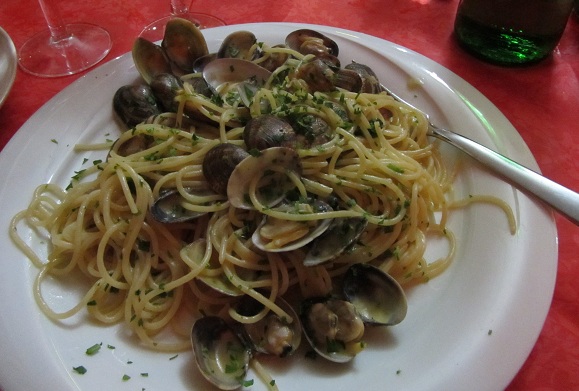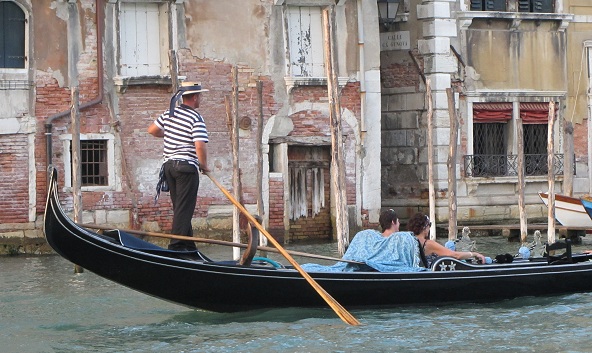Planning - Preparing For Your Trip
How can you make your trip enjoyable for all members of the family? Preparing for your trip is about more than just putting the right things into the suitcases, it's also about doing a little 'homework' before you go so that you can get the most out of everything you see and do once you arrive.
The public library is a fantastic resource for all members of the family. There are fabulous non-fiction books that can teach the kids basic information about the countries you'll be visiting. Take a bunch of books out of the library and look through them together; find statues or buildings that look interesting and make a potential 'to-do' list of things you'd like to see when you're there. Having an idea of what a place will look like will make the transition a little easier, particularly for young children. Seeing something up close that you've seen in a book is exciting because it has now gone from hypothetical to real. This makes it familiar and keeps everyone interested and engaged.
 Seek out restaurants in your home city that highlight food from the regions you'll be going to, and if that isn't possible try cooking some new recipes at home. Tasting new flavors and getting used to the names and looks of different dishes help make the experience a little less daunting when you're in a new country. Finding some 'safe' food (ie - ones that you know your kids will eat!) will help everyone feel more comfortable when faced with a foreign menu. Before our first trip to France we 'practiced' by eating crepes, baguettes, and various French cheeses. A delightful discovery in Paris was that most restaurants serve green beans (haricots verts) as a side dish, so familiarizing yourself with the menu and having a small translation book is very handy.
Seek out restaurants in your home city that highlight food from the regions you'll be going to, and if that isn't possible try cooking some new recipes at home. Tasting new flavors and getting used to the names and looks of different dishes help make the experience a little less daunting when you're in a new country. Finding some 'safe' food (ie - ones that you know your kids will eat!) will help everyone feel more comfortable when faced with a foreign menu. Before our first trip to France we 'practiced' by eating crepes, baguettes, and various French cheeses. A delightful discovery in Paris was that most restaurants serve green beans (haricots verts) as a side dish, so familiarizing yourself with the menu and having a small translation book is very handy.
Being able to say a few basic phrases in the language of your intended country goes a long way. If you don't have the time or desire to take an actual course, consider taking some CD's out of the library or buying a workbook a few months before you go. Don't overwhelm yourself, just spend a few minutes everyday and you'll be amazed at what you can learn. If nothing else, learn please and thank-you and use them frequently. Show your kids that you're trying your best and that you appreciate the fact that you are in a foreign country by respecting the language and customs.
 Maps and atlases are fantastic tools that shouldn't only come out when there is a trip on the horizon. Make the world relevant and attainable by having globes, maps, and atlases easily accessible. If you're discussing a current event take the extra minute to point it out on a map to help put things into perspective. Even places in your own country can be put into context when shown on a map - how far away is it? What is the weather like there? What time is it there compared to here? All of these questions are fantastic learning opportunities that can be easily wound into a seemingly 'normal' conversation, but help add to global awareness. Plastic coated placemats of the world (or your country) are very inexpensive and an excellent way to introduce kids to the vastness of this planet. They may surprise you with their questions and in turn you'll often learn something new too!
Maps and atlases are fantastic tools that shouldn't only come out when there is a trip on the horizon. Make the world relevant and attainable by having globes, maps, and atlases easily accessible. If you're discussing a current event take the extra minute to point it out on a map to help put things into perspective. Even places in your own country can be put into context when shown on a map - how far away is it? What is the weather like there? What time is it there compared to here? All of these questions are fantastic learning opportunities that can be easily wound into a seemingly 'normal' conversation, but help add to global awareness. Plastic coated placemats of the world (or your country) are very inexpensive and an excellent way to introduce kids to the vastness of this planet. They may surprise you with their questions and in turn you'll often learn something new too!
As the trip gets closer get the kids involved in the packing process. Help them figure out the expected temperatures and weather conditions of the places you'll be visiting, and the types of activities you plan on doing. Of course parents get ultimate veto power over what goes into a suitcase, but giving them some freedom and choice is very empowering. For example, if you plan on packing 4 t-shirts, allow them to choose their favorite two shirts and you help choose the other two. Discuss the toys they would like to take - take some things to play with in your hotel or apartment that will keep them occupied and content when you all need a little down time. (For our family these toys are usually only played with when we're back in the room and are things like Lego, Barbies, Playmobil or whatever your child enjoys playing with). Stick with one type of toy and make sure your child actually enjoys it (and that it isn't something that you 'think' or 'hope' they like!).
In short, involve your kids. Discuss your plans at the dinner table, slip in little tidbits about the places you'll be going and what they can expect. Don't bore then with little details, but if they are curious and interested give them as much information as they can handle. Being bombarded with new sights, smells, languages and people can be disconcerting and confusing at the best of times, but particularly if you aren't prepared for it. You don't need to become fluent in German, an expert in Roman architecture, or know the history of Spain to be well prepared - just learn your please and thank-yous, peruse some travel guides and if you're particularly interested in a subject read more! Enjoy learning when the only test you'll need to take at the end is figuring out how to order a cup of coffee in a sidewalk café.



 About Me
About Me